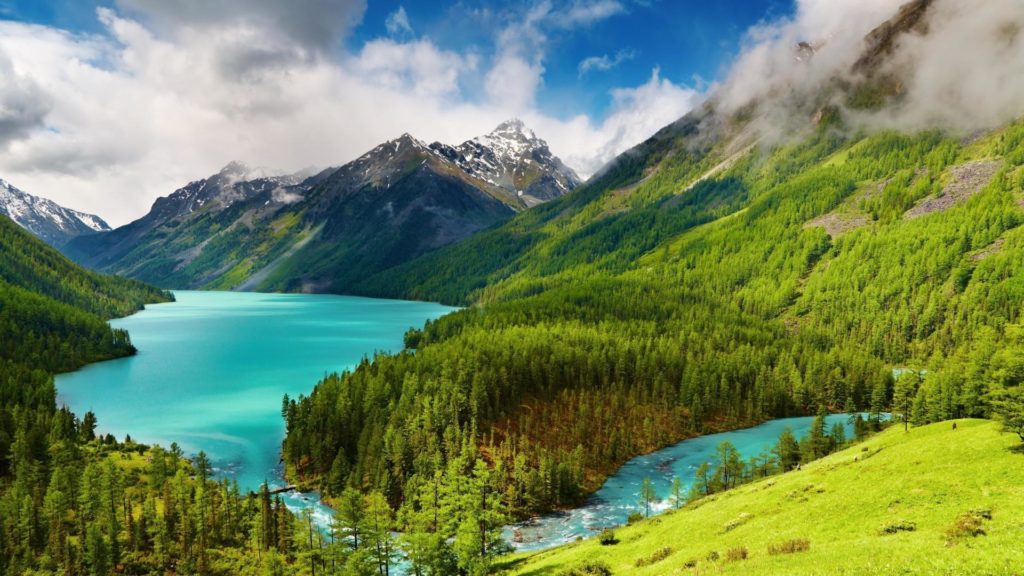Much of Russia’s Far East is so vast and remote that it’s mostly been left to the bears, wolves and rare breed of tiger that live there. Now the Kremlin wants to use it to convince the world that the country is doing its part to fight climate change.
Russia, the world’s biggest energy exporter and one of its largest polluters, is creating a digital platform to collect satellite and drone data about the CO₂ absorption capacity of the region’s forests. The aim ostensibly is to monetize an area nearly twice the size of India by turning it into a marketplace for companies to offset their carbon footprint.
The hope is that the plan will also deflect some of the criticism Moscow is getting over its unambitious climate efforts ahead of United Nations talks later this year. Russia has long argued that it should be granted more slack in climate talks for the sequestration potential of its forests, which hold an estimated 640 billion trees. But until now the huge taiga has been poorly managed, leading to record forest fires in the past two years as global warming has made summers hotter and dryer.

“Russia has 20% of global forests, so the international community must be fair in that respect,” Alexey Chekunkov, minister for the development of the Russian Far East and Arctic said in an interview. “We have the potential to turn them into a massive carbon capture hub.”
“The lion’s share of Russia’s plan to cut emissions should be renewable energy, new technology and energy efficiency,” said Alexey Kokorin, director of the Climate and Energy Program at WWF Russia. “Additionally, and with very strict criteria, would come forestry development.”
Russia’s climate goals, which are rated “critically insufficient” by Climate Action Tracker, mean it wouldn’t qualify to use carbon offsets as part of its Paris Agreement target, according to Anna Romanovskaya, director of the Moscow-based Yu. A. Izrael Institute of Global Climate and Ecology. But companies could in theory still sell credits internationally if they can prove they’ve added to the forest’s absorption capacity, she said. State-controlled oil and gas giant Gazprom Neft PJSC, petrochemical producer Sibur Holding PAO, and machine manufacturer Sinara Group have expressed interest in investing in future pilot projects for measuring forest carbon absorption, Valery Falkov, minister for science and higher education, told President Vladimir Putin at a meeting earlier this month.
The Far East project may mitigate losses from a European Union plan to impose a levy on some emissions-intensive goods, according to Maxim Khudalov, head of sustainable development risk assessment at Moscow-based Acra Ratings. Exporters of Russian raw materials forecast annual additional costs of as much as $8 billion from the so-called Carbon Border Adjustment Mechanism, due to come into force in 2023.
Obtaining accurate data on carbon sequestration from forests is difficult, though, because trees are vulnerable to unpredictable events like forest fires and disease outbreaks. It also requires detailed inventory data, which on average hasn’t been updated in Russia in 25 years, Romanovskaya said. Offset programs based on planting trees have come under criticism after many were found to have no contribution to reducing the amount of CO₂ in the atmosphere.
“We will need to demonstrate to the international community that calculation of CO₂ absorption in our offset projects is precise, reliable and not a single unit is miscalculated,” Romanovskaya said. “One mistake, let alone an intentional falsification, and the credibility of our projects may be lost.”
Source: bloomberg.com
To read the complete article visit: https://www.bloomberg.com/news/articles/2021-03-23/russia-wants-to-use-a-forest-bigger-than-india-to-offset-carbon
